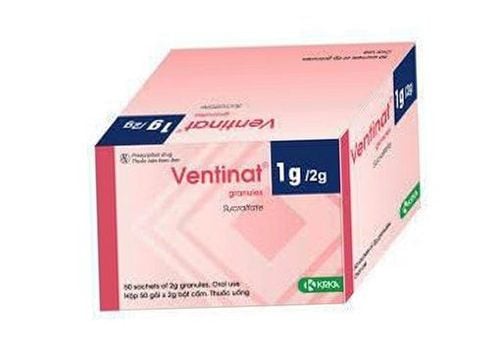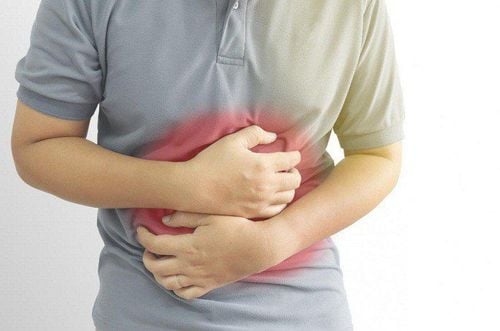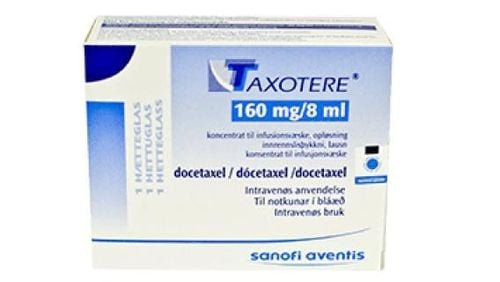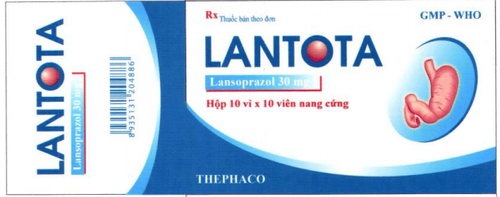This is an automatically translated article.
The article is professionally consulted by MSc.BSCKII Phan Thi Minh Huong - Gastroenterologist, Vinmec Danang International General Hospital.
Helicobacter pylori infection is considered the most common type of bacterial infection in the world after bacteria of tooth decay. This type of infection is very quiet so it is difficult to detect, but it is the causative agent of chronic stomach pain such as chronic gastritis or gastric ulcer, even stomach cancer. Let's find out the problems related to HP bacteria through this article.
1. What is Helicobacter pylori?
Helicobacter pylori is a bacterium that lives and grows in the human stomach.So why does HP bacteria live in the stomach? In an acidic environment such as the stomach, HP bacteria survive by secreting an enzyme called Urease that helps it neutralize the acidity in the stomach.
Many people, when found to be infected with HP bacteria, often worry about whether or not HP bacteria cause cancer. In fact, Helicobacter pylori can lead to chronic progressive gastritis and is a major cause of gastric ulcer, duodenal ulcer, and gastric cancer. According to research, about 1% of people infected with Helicobacter Pylori bacteria have an increased risk of cancer.

2. Stomach Helicobacter pylori is transmitted by which way?
Is HP bacteria contagious? The answer is that this bacterium is completely capable of spreading from a carrier to a healthy person. Usually they are spread through 3 ways as follows:
Oral - oral: This is the main transmission route of HP bacteria, spread by contact with saliva or gastrointestinal secretions of infected people and healthy people. Usually, if someone in the family is infected with HP, the chance that others will also be infected is very high. Fecal-oral route: Bacteria are eliminated through feces and are a source of spread to the community, due to the habit of eating raw food, they may be infected with HP bacteria. Other ways: It is possible to be infected due to the common examination of medical equipment such as gastroscopy, otoscope, dental instruments, etc. Therefore, cleaning and sterilization of medical equipment should be done after each use. Use for different subjects is necessary to avoid HP infection.

3. Who is at risk for HP infection?
All subjects are at risk of HP infection. Currently, it is estimated that about 50% of the world's population is infected with H. However, the incidence of the disease depends on many different factors such as age, geographical area, living habits and quality of life.
Young children are also at high risk of infection because their parents or relatives infected with bacteria have the habit of kissing children's lips, feeding food to children....
Although the infection rate is quite high, many cases are In cases where infected people do not show any symptoms or complications on the gastrointestinal tract.
Trắc nghiệm: Bạn biết bao nhiêu về vi khuẩn Listeria?
Listeria là một chủng vi khuẩn có thể gây ra nhiều vấn đề nghiêm trọng cho sức khỏe khi cơ thể bị nhiễm phải. Vậy, bạn đã biết được bao nhiêu về chủng vi khuẩn này? Hãy trả lời nhanh 14 câu trắc nghiệm dưới đây để có lời giải đáp nhé!
Bài dịch từ: webmd.com
4. How do I know I have HP?
Symptoms in people infected with HP bacteria are often silent, not obvious. Usually it causes epigastric abdominal pain, bloating, dyspepsia, stool disorders,... In case of such pain, it is best to visit the hospital to know the results. the most exactly.
Methods in medicine applied to detect HP bacteria include:
Invasive method: The patient is conducted a gastroduodenal endoscopy to assess the status of peptic ulcer disease. At the same time, after the endoscopy, the doctor takes a biopsy tissue sample and conducts a rapid urease test, histological biopsy or bacterial culture. Non-invasive method: This method patients can know if they are infected with HP bacteria or not without the need for a gastroduodenal endoscopy, with the following 3 ways: Breath test Test for HP bacteria in stool Test blood test for anti-HP antibodies (rarely used).

5. How is HP bacteria treated?
Treatment to kill HP bacteria on subjects with HP infection is indicated in the following cases: peptic ulcer disease, gastric cancer that has been treated, iron deficiency anemia, thrombocytopenia bleeding. Prophylactic treatment of gastric cancer for people infected with HP in the case of: family members with gastric cancer, gastric polyps, atrophic gastritis using non-steroidal anti-inflammatory drugs (NSAIDs). or someone who wishes to eliminate HP. HP treatment method used is a combination of antibiotics and a drug to reduce gastric acid secretion. The use of these drugs can cause some side effects such as black stools, diarrhea, taste disturbances (metallic taste), black tongue and alcohol withdrawal reactions (antabuse effect).
Please dial HOTLINE for more information or register for an appointment HERE. Download MyVinmec app to make appointments faster and to manage your bookings easily.
Articles compiled from the source: Pasteur Institute












